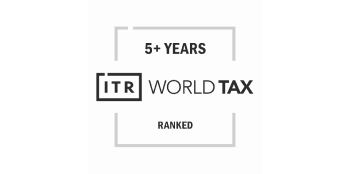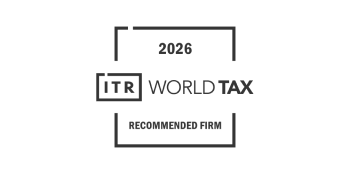


En México, la gestión de riesgos penales se ha convertido en un componente esencial dentro de la estrategia empresarial. En un entorno donde la regulación y las expectativas de responsabilidad corporativa se amplían de forma constante, el compliance penal es indispensable para garantizar la continuidad operativa, proteger a quienes lideran las organizaciones y preservar la reputación corporativa.
Las empresas que participan en fusiones, adquisiciones, emisiones de valores y financiamientos enfrentan riesgos penales que requieren atención prioritaria. Las transacciones complejas, la operación en sectores regulados y la interacción con contrapartes en diversas jurisdicciones exigen un enfoque que combine el conocimiento técnico transaccional con una perspectiva de prevención penal.
En este contexto, el compliance penal corporativo se convierte en un mecanismo de protección que ayuda a las empresas a prepararse frente a investigaciones, responder a reclamaciones de autoridades y mitigar la exposición a litigios derivados de omisiones de supervisión o de hechos que puedan interpretarse como delitos corporativos.
Las operaciones de fusiones y adquisiciones, financiamientos y reestructuras conllevan riesgos penales que a menudo pasan desapercibidos. Durante estos procesos, la empresa adquirente puede asumir pasivos penales de la entidad objetivo por incumplimientos en materia ambiental, fiscal, laboral o de anticorrupción.
Contar con un sistema de compliance penal sólido permite identificar estos riesgos con anticipación, facilita la toma de decisiones informadas en la due diligence y contribuye a mitigar contingencias, estructurar operaciones con mayor seguridad y proteger a las partes involucradas. Asimismo, genera evidencia de control y supervisión que puede ser determinante ante investigaciones penales.
La evolución del marco legal en México ha modificado la forma en que las empresas enfrentan sus riesgos. Actualmente, las organizaciones pueden ser investigadas y sancionadas penalmente de manera independiente de sus directivos o colaboradores, lo que genera un nivel adicional de exposición para la persona jurídica.
Este entorno exige la implementación de sistemas de compliance penal que vayan más allá de códigos de conducta o manuales de ética, incorporando procedimientos claros para prevenir, detectar y gestionar incidentes que puedan derivar en responsabilidad penal.
Los consejos de administración enfrentan un escrutinio cada vez más riguroso por parte de las autoridades y dentro de las estructuras de gobierno corporativo. Las omisiones en la implementación de controles internos, en la prevención de delitos o en la supervisión de operaciones de riesgo pueden derivar en responsabilidades penales directas para consejeros y directivos.
Un sistema de compliance penal corporativo bien estructurado actúa como una herramienta de protección para los órganos de administración, permitiéndoles demostrar ante las autoridades el cumplimiento de su deber de supervisión y su actuación diligente en la prevención de conductas ilícitas dentro de la organización.
Los riesgos penales que enfrentan las empresas requieren un enfoque especializado que trascienda la asesoría jurídica tradicional. Las sanciones penales a personas jurídicas se aplican de forma paralela e independiente a las que corresponden a directivos, empleados y terceros, y la falta de supervisión o de controles adecuados puede derivar en responsabilidad penal para la empresa y sus administradores.
Los delitos cometidos por empleados, prestadores de servicios o proveedores pueden generar consecuencias económicas y operativas relevantes si no se cuenta con mecanismos de prevención eficaces. Además, la defensa penal de una persona jurídica implica estrategias y conocimientos distintos a los que se aplican en la defensa de personas físicas, dada la naturaleza de las responsabilidades, las pruebas y los procedimientos involucrados.
La participación de especialistas en materia penal corporativa permite a las empresas evitar conflictos de interés en casos donde se investigan hechos que involucran a empleados o colaboradores. De esta forma, se garantiza que la estrategia de defensa se enfoque en proteger a la persona jurídica, resguardando su posición frente a las posibles responsabilidades individuales de terceros.
La creciente transferencia de riesgo penal hacia los miembros de los consejos de administración por omisiones en supervisión y control ha elevado la exposición de quienes toman decisiones dentro de las empresas. Contar con asesoría técnica especializada permite a los órganos de gobierno estructurar estrategias preventivas y de defensa respaldadas con evidencia de control y supervisión.
Los especialistas en compliance penal aportan conocimientos en criminología corporativa, control interno, estándares ESG y análisis de riesgos específicos del sector, lo que permite anticipar escenarios de exposición penal. Una comprensión detallada de las operaciones y la cultura organizacional es clave para identificar vulnerabilidades, fortalecer mecanismos de prevención y demostrar diligencia en el cumplimiento de las obligaciones legales.
La participación de especialistas se traduce en acciones concretas, como:
Para las empresas que operan en sectores regulados o que participan en transacciones complejas, sumar especialistas en materia penal corporativa permite abordar los riesgos de forma integral. Este enfoque asegura que la prevención penal se mantenga como un componente esencial de la estrategia legal y de la gestión de riesgos, contribuyendo a la estabilidad operativa y a la protección de la organización y de quienes la dirigen.
Un programa de compliance penal sólido inicia con la identificación y el análisis de los riesgos asociados a la industria, las operaciones y las jurisdicciones en las que participa la empresa. Este diagnóstico permite diseñar controles proporcionales y enfocar los esfuerzos preventivos en las áreas con mayor nivel de exposición, optimizando recursos y fortaleciendo la efectividad de las medidas implementadas.
Este análisis debe considerar las características específicas de cada operación, el marco normativo aplicable y los antecedentes de la industria para establecer medidas de control que contribuyan a prevenir incidentes.
Contar con políticas y procedimientos no basta si no se genera la evidencia que acredite su aplicación. Por ello, un sistema de compliance penal debe incluir mecanismos de documentación y registro que permitan demostrar, ante las autoridades, el compromiso de la organización con la prevención de conductas delictivas.
Herramientas como matrices de riesgo penal, reportes de auditorías internas, constancias de capacitación, registros de incidentes y protocolos de actuación ante situaciones de riesgo constituyen un respaldo para la empresa en caso de enfrentar procedimientos penales, demostrando diligencia en la identificación, prevención y gestión de riesgos.
La efectividad de un programa de compliance penal depende en gran medida de su integración en la cultura de la organización. Para ello, es indispensable que colaboradores, directivos y miembros del consejo de administración comprendan tanto las normas aplicables como su relevancia en las actividades cotidianas.
La capacitación continua es fundamental para sensibilizar al personal sobre los riesgos penales relacionados con sus funciones, fortalecer el conocimiento de los controles internos y fomentar la cultura de reporte de irregularidades. Este enfoque contribuye a construir un entorno de integridad que refuerza la gestión de riesgos penales en la organización.
La gestión de riesgos penales requiere un enfoque transversal que considere tanto la perspectiva penal como la naturaleza de las operaciones de la empresa. Contar con un equipo especializado en compliance penal permite evaluar riesgos desde la fase de planeación, diseñar estructuras legales sólidas y garantizar que cada paso relevante quede documentado con evidencia de control.
Esta integración facilita la identificación de posibles contingencias penales durante transacciones complejas, fortaleciendo los procesos de debida diligencia y apoyando la toma de decisiones informadas en fusiones, adquisiciones, financiamientos y reestructuras.
El entorno actual exige que las empresas en México consideren el compliance penal como un elemento integral de su estrategia, y no únicamente como una herramienta reactiva. La ampliación de las responsabilidades penales de las personas jurídicas, las exigencias de supervisión a los órganos de administración y la complejidad de las operaciones en sectores regulados requieren un enfoque que combine la técnica transaccional con la prevención de riesgos penales.
Implementar sistemas de compliance penal sólidos, adaptados a las características de cada industria y con una perspectiva práctica, permite a las organizaciones identificar riesgos de manera oportuna, establecer controles proporcionales y generar evidencia de cumplimiento. Este enfoque no solo contribuye a mitigar riesgos de manera efectiva, sino que fortalece la cultura de integridad dentro de las empresas y protege a quienes las lideran.
El compliance penal, entendido como un componente esencial de la gestión de riesgos y del gobierno corporativo, se ha convertido en un requisito indispensable para operar con certeza, preservar la continuidad de las operaciones y mantener la confianza de autoridades, socios comerciales y colaboradores en un entorno cada vez más exigente.
Awards














